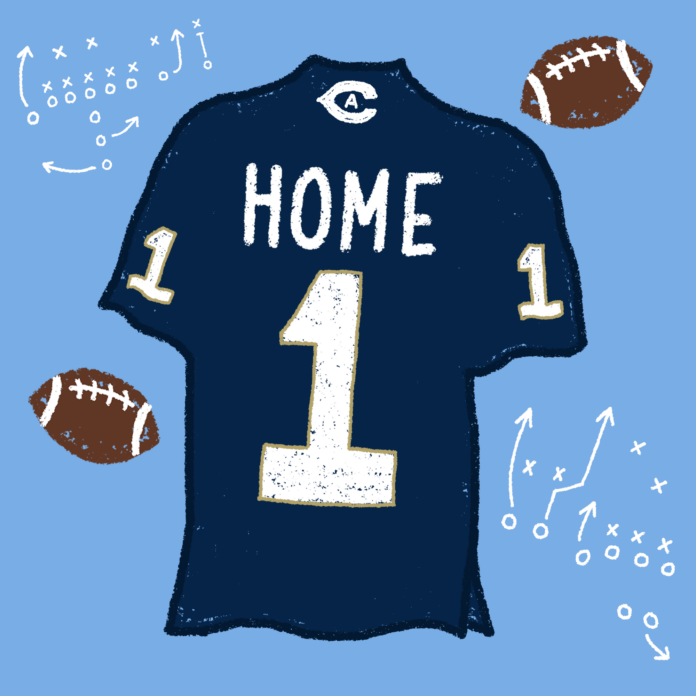Exploring the importance of sports in community building
By VIOLET ZANZOT— vmzanzot@ucdavis.edu
The Philadelphia Eagles — my team — are the 2025 Super Bowl champions. Of course, when I say “my team” I mean that it is their wins I celebrate and their losses I mourn. I share this team with millions of other people, just like I share the Boston Red Sox, the Auburn Tigers and the UC Davis Aggies.
Saying a team is mine feels synonymous with naming a place, in my case Alabama, as my home. It is mine, but I share it with millions of other people. These things do not belong to me alone, but I ascribe them to the communities they embody. They are mine because I have memories associated with them and because in some way, they have shaped me into the person I am today.
To love a team is to be part of a collective, to care about something bigger than yourself and to know that, even though everyone may be there for a different reason, you all share the purpose of participating in and supporting the community itself.
It’s easy to not understand sports — not just the rules, but the passions behind the fans. From outside the sports world, it may be difficult to grasp why people dedicate Sundays to the couch, glued to the TV for 18 weeks (and also for playoffs), or why people buy $150 jerseys or fly across the country to see the team they watched as a kid play. As someone from the inside, it just makes sense.
The impact a team can make on an individual and a community expands beyond the final whistle of a game. Lincoln Financial Field, the Eagles’ stadium (along with the team itself) has dramatically impacted Philadelphia’s economy. Retail vacancy in Philadelphia now sits at 2%, and the increase in foot traffic around game day by both locals and tourists boosts revenues of surrounding businesses — the expansion only continues.
Teams generate even more sales related to game tickets, concessions, merchandise, sponsorships and advertising, effectively bringing people in to support a town. Outside of fiscal impact, they go further with outreach. Teams support charitable endeavors: Look to the Eagles’ Autism Foundation or the Eagles’ Charitable Foundation.
Beyond that, teams increase social capital, a measure of the quality of life. Sports build interpersonal relationships, social networks, civic engagement, trust and cooperative norms.
Sports, of course, can mean a lot of different things, whether one is referencing pee wee soccer, Major League Baseball, women’s rugby, the National Hockey League or anything in between tag and synchronized swimming.
The type of sport and level of play have their own impacts and implications, but all sports can build community — it’s just a matter of the impact size and involvement between those on the “field” and those cheering on the sidelines.
Being a fan makes an individual part of a community. Whether you’re in Argentina, Australia or America, you can cheer for the Eagles — and you will have people cheering with you. You may have people cheering against you, too, but those people are wrong, so don’t listen to them (just kidding). Regardless of who you cheer for, the point is that the simple act of cheering for someone gives you a place to belong.
Sports build more than an economy and do more work than what you see on magazine covers — they give people something to connect with as they pass each other on the streets (for instance, exchanging a “Go birds!”). Being a supporter of a team, a fan, gives you something to cheer for or cry about, something to drink, eat and scream about; And, most importantly, it gives you people to do those things with.
Written by: Violet Zanzot— vmzanzot@ucdavis.edu
Disclaimer: The views and opinions expressed by individual columnists belong to the columnists alone and do not necessarily indicate the views and opinions held by The California Aggie.









